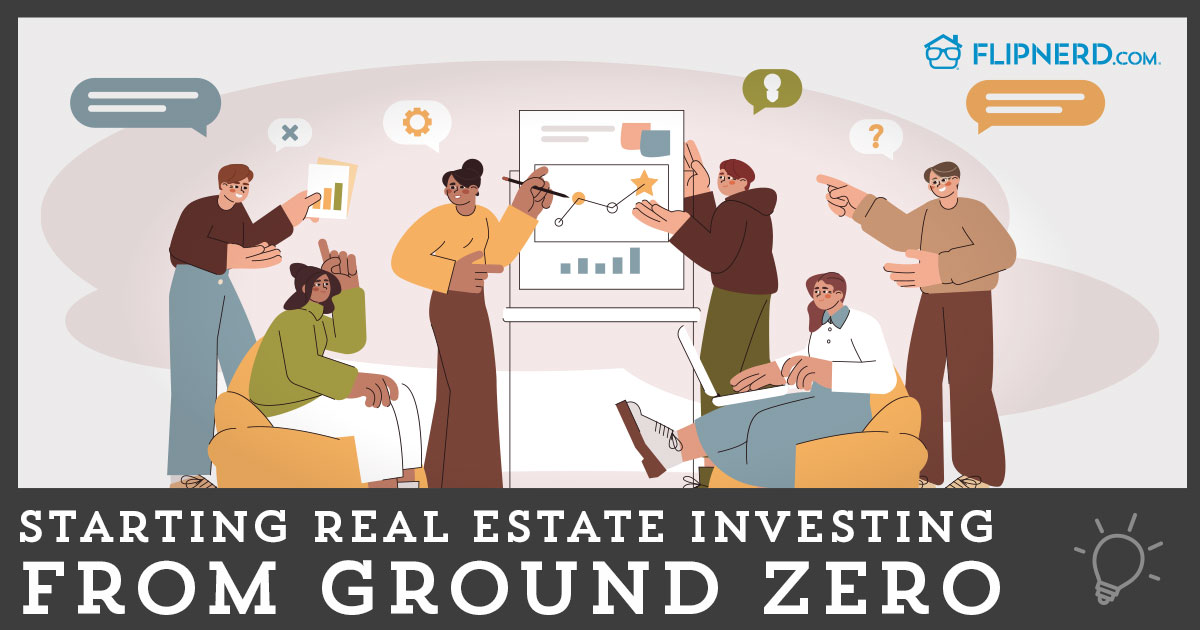For real estate investors who are learning as much as you can about the industry so you can finally start doing deals, don’t make this newbie mistake! If you do, you’re leaving deals on the table and it is costing you money.
It can be an easily missed step when you’re just starting out and what’s worse is you won’t have any idea what you’re missing out on… until another investor gets a property you looked at a few months ago under contract at the same price or even lower than your original offer.
If you haven’t guessed it yet, we’re talking about FOLLOWING UP!
Your motivated leads aren’t dead until the person sells the property to someone else or they ask to be removed from your list. Just because they didn’t sell to you this month doesn’t mean they’re never going to sell.
It’s a good possibility that they aren’t ready to take the leap and accept an offer. Selling a house is a big decision for people and they sometimes need a lot of time before pulling the trigger.
When you attend an appointment, it’s important to get an idea of how quickly they’re needing out of the property and how motivated they are. If they don’t have a date that they need to be out by, they might be taking their time adjusting to the fact that they’re having to sell the property.
Keep an eye out for a change in the owner’s name (you can do this by visiting the local tax assessor’s website) and until ownership has changed, still follow up with them.
Your Follow-Up Routine
The follow-up schedule for each investor is going to be different. Some people only send postcards while others mix in text messages, voicemails, yellow letters, etc.
In addition to direct mail follow-up, we recommend that you or your buyer personally call the seller after the meeting while the offer is still at the top of their mind.
Let the seller’s motivation dictate how often your phone call follow-ups are. For example, if they say they need a day to think about it, follow up the following day.
Building a relationship and rapport with the seller both while attending the appointment and after the appointment will pay big dividends here.
Postcards are going to be the most cost effective piece of direct mail but having a mix of follow-up allows you to see what type of marketing is working best in your market.
Many investors have their initial follow-ups for the first few months more frequent and as time goes on, they lower the frequency to maybe once every month or two.
Why Follow-Up Matters
As we mentioned above, the seller might not be ready to sell when you meet with them. Some want to know what they could get out of their home in ‘as-is’ condition but haven’t made the decision to actually sell.
Making your follow-up feel as personal as possible can set you apart from other investors they might have met with. Building rapport with the seller during a trying time in their lives will show that you’re there to be a solution for them and that you aren’t only in it for the money.
When they are ready to sell, they’re going to contact someone they remember or someone whose information they have handy. This is why both phone calls and steady mail follow-up can help your name stand out in a field of other investors.
Automate Your Follow-Up
If you have a virtual assistant, this can be perfect for them to manage. Let them know your follow-up schedule and you can have your follow-ups be batched and scheduled well in advance so you aren’t having to worry about them.
For those who are doing follow-up on your own, ideally, you have a CRM such as Podio so you can keep track of what’s been mailed to them and for how long. Get a system in place so that it’s automatic and leads aren’t slipping through the cracks.
Create a follow-up system that works for your business and your market. Keep on sending follow-up calls and mail until there’s a reason not to.
We’ve gotten deals from leads that were YEARS old!
You never know when an old lead might call you up because you were the only one still following up.









